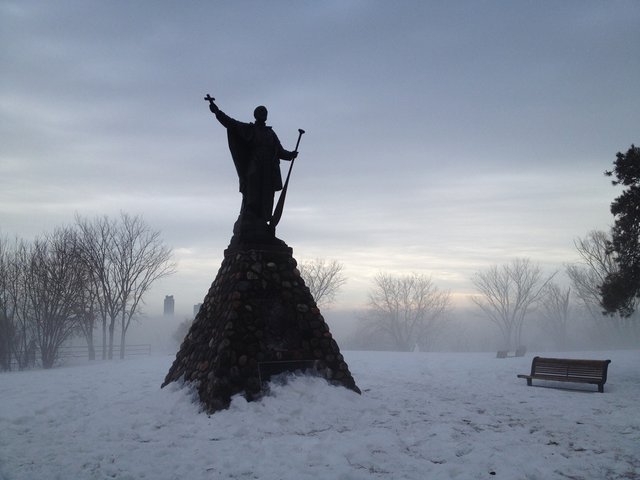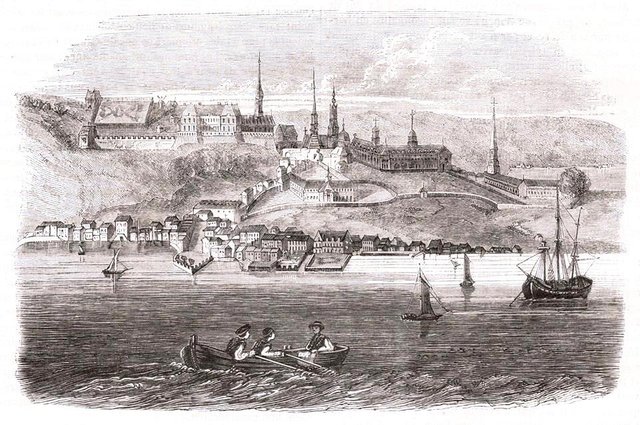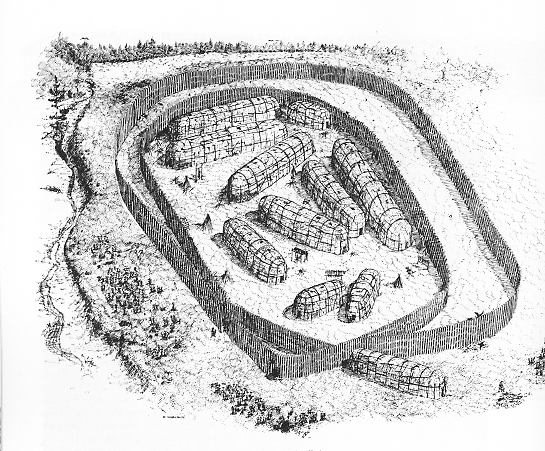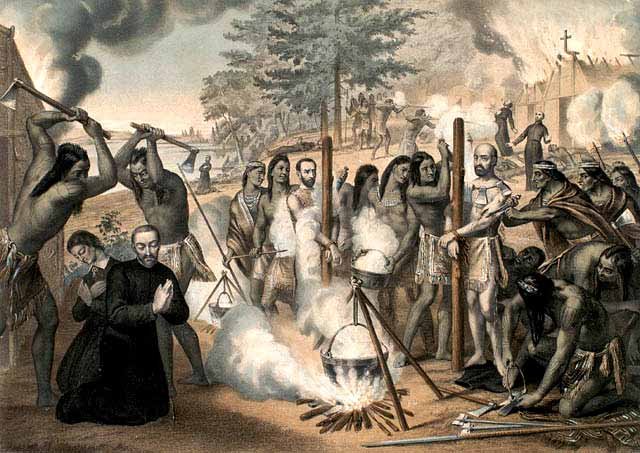Jean de Brebeuf: Pulling the Heaviest Load
March 16 in Christian History

On March 16, 1649, the five white men were dragged with the other captives into the occupied Huron village of Taenhatenteron.
The Iroquois warriors had been surprised to find the five “black-robes” in the village. As the Iroquois raiding parties captured and massacred village after village of their Huron enemies, nearly all of the white foreigners had abandoned their Huron allies and returned their settlements in Québec and Montréal. However, courage would not save these white men from the ritual torture to which all prisoners of war were subjected to. Without a word or an act of resistance, the tallest of the Frenchman was tied securely to the wooden stake to await his grizzly fate.
24 years earlier, Jean de Brébeuf arrived in New France. The 32-year-old Jesuit priest from Normandy was assigned as a missionary to the Huron people of what is now southern Ontario. Brébeuf was selected for his courage but also for his remarkable knack for languages.

Brébeuf quickly picked up the language and immersed himself in the culture of the Hurons. They named him Echon, which means “He who pulls the heavy load,” a reference to his huge stature. He wrote the first Huron dictionary and translated numerous prayers and Bible passages. It was he who coined the term Lacrosse to refer to the favorite Huron sport.
Brébeuf was unlike many Christian missionaries of his day, who had tried to destroy the culture of their “savage” converts and bring them to full conformity Roman Catholic practice. Brébauf had deep respect for the Huron way-of-life and tried to find common ground between Christianity and the spirituality of the Hurons. He penned the Huron Carol, which describes the nativity in Huron style. The shepherds are called hunters, the magi are chiefs, and their gifts are furs. Most controversial of all, God is called Manitou, the great Spirit worshiped by the Hurons.
The final verse states:
O children of the forest free
O sons of Manitou
The Holy Child of earth and heaven
Is born today for you
Come kneel before the radiant Boy
Who brings you beauty, peace and joy

His love of the Hurons did not spare Brébuf from harsh opposition. When an outbreak of smallpox killed half of the village, the Hurons blamed the French. Crosses were destroyed and his chapel was vandalized. The few converts to Christianity abandoned their faith.
Brébeuf described his great danger in a letter to a group of young priests considering a mission work among the Hurons. He noted that every hardship experienced by the village was attributed to the presence of the priests. He faced a constant threat of death at the hands of the people he loved. While this load may have seemed unbearable to the strongest missionary, it was not too much for this Christian giant.

”’Where is the gain,” you ask? There is no gain but this—that what you suffer shall be of God. So if despite these trials you are ready to share our labours, come; for you will find a consolation in the cross that far outweighs its burdens.”
Brébeuf faced his greatest burden only a few years later. The Iroquois warriors tortured him mercilessly for four hours before killing him. They burned his skin, severed his feet, cut off his lips, removed his finger nails, and skinned his limbs. The priest did not beg for mercy and showed concern only for his fellow victims. The Iroquois, impressed by his resilience, cut out his heart and ate it in order to ingest his courage.

The death of the courageous priest marked an explosion in missionary work. The Jesuits were emboldened by the martyrdom and came to New France in droves. When their villages were decimated, the surviving Huron converts were disbursed among the Great Lake tribes, including the Iroquois. Annual converts numbered in the hundreds and sometimes in the thousands in the years following the death of Jean de Brébeuf, who would be named the patron saint of Canada.
Verse of the day: Psalm 27:1
The LORD is my light and my salvation. Whom shall I fear?